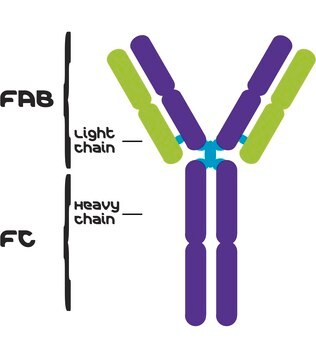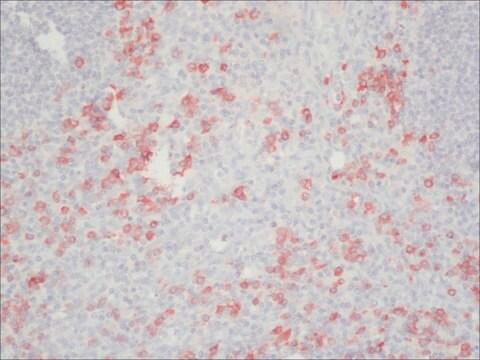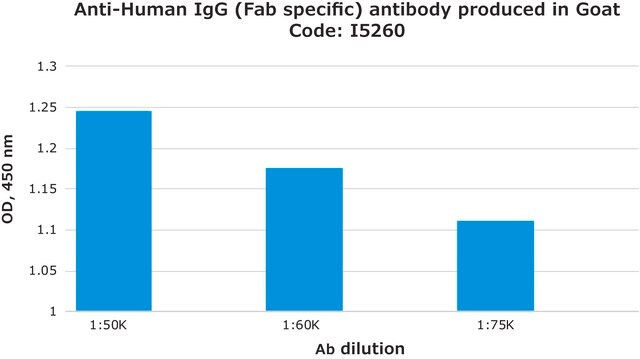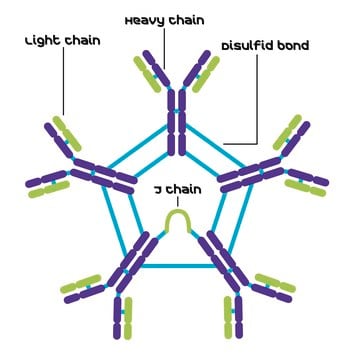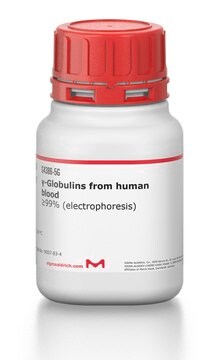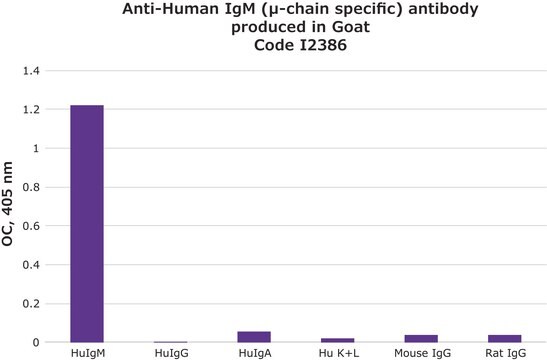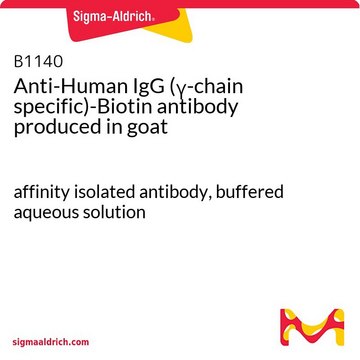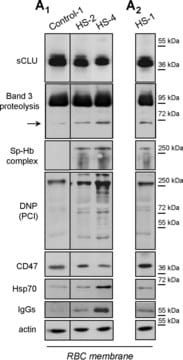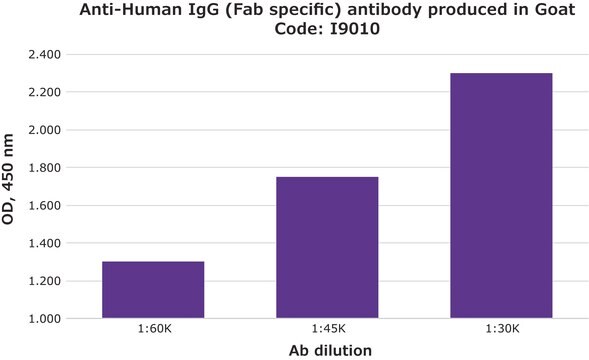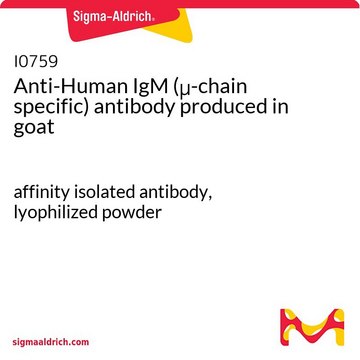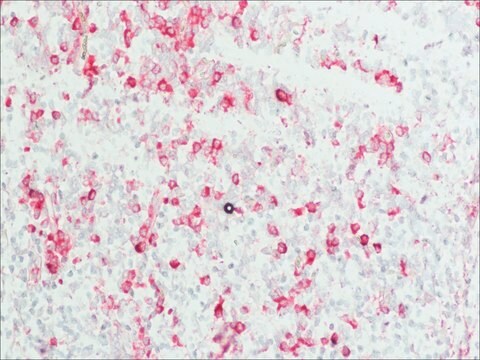I1886
Anti-Human IgG (whole molecule) antibody produced in goat
IgG fraction of antiserum, buffered aqueous solution
Synonym(s):
Anti-Human IgG, Goat Anti-Human IgG
Sign Into View Organizational & Contract Pricing
All Photos(1)
About This Item
Recommended Products
biological source
goat
Quality Level
conjugate
unconjugated
antibody form
IgG fraction of antiserum
antibody product type
secondary antibodies
clone
polyclonal
form
buffered aqueous solution
technique(s)
indirect ELISA: 1:10,000
quantitative precipitin assay: 3.0 mg/mL
shipped in
dry ice
storage temp.
−20°C
target post-translational modification
unmodified
Looking for similar products? Visit Product Comparison Guide
General description
Human IgGs are glycoprotein antibodies that contain two equivalent light chains and a pair of identical heavy chains. IgGs have four distinct isoforms, ranging from IgG1 to IgG4. These antibodies regulate immunological responses to allergy and pathogenic infections. IgGs have also been implicated in complement fixation and autoimmune disorders . Anti-human IgG (whole molecule) antibody is specific for human IgG when tested against normal human serum and IgG by immunoelectrophoresis. The antibody also reacts with light chains. Immunoglobulin G (IgG) is part of the immunoglobulin family and is a widely expressed serum antibody. It consists of a γ heavy chain in the constant (C) region. The primary structure of this antibody contains disulfide bonds involved in linking the two heavy chains, linking the heavy and light chains and also resides inside the chains.
Immunogen
Human IgG
Application
Anti-Human IgG (whole molecule) antibody is suitable for use in quantitative precipitin assay (3.0 mg/mL).
Applications in which this antibody has been used successfully, and the associated peer-reviewed papers, are given below.
Western Blotting (1 paper)
Western Blotting (1 paper)
Physical form
Solution in 0.01 M phosphate buffered saline, pH 7.4, containing 15 mM sodium azide as preservative
Disclaimer
Unless otherwise stated in our catalog or other company documentation accompanying the product(s), our products are intended for research use only and are not to be used for any other purpose, which includes but is not limited to, unauthorized commercial uses, in vitro diagnostic uses, ex vivo or in vivo therapeutic uses or any type of consumption or application to humans or animals.
Not finding the right product?
Try our Product Selector Tool.
Storage Class Code
10 - Combustible liquids
WGK
nwg
Flash Point(F)
Not applicable
Flash Point(C)
Not applicable
Choose from one of the most recent versions:
Already Own This Product?
Find documentation for the products that you have recently purchased in the Document Library.
Customers Also Viewed
Tuerhongjiang Tuxun et al.
Scientific reports, 8(1), 4417-4417 (2018-03-15)
Fluorodeoxyglucose (FDG) uptake by alveolar echinococcosis (AE) liver lesions is a signal of their metabolic activity and of disease progression. In order to find a surrogate marker for this status, we investigated whether parameters of the peripheral and/or periparasitic immune
Steffen Preissler et al.
eLife, 4, e08961-e08961 (2015-10-17)
DnaK/Hsp70 chaperones form oligomers of poorly understood structure and functional significance. Site-specific proteolysis and crosslinking were used to probe the architecture of oligomers formed by the endoplasmic reticulum (ER) Hsp70, BiP. These were found to consist of adjacent protomers engaging
D Castelletti et al.
Clinical and experimental immunology, 136(2), 365-372 (2004-04-17)
Hodgkin's lymphoma patients treated with an anti-CD25 Ricin toxin A-chain (RTA)-based Immunotoxin (RFT5.dgA) develop an immune response against the toxic moiety of the immunoconjugate. The anti-RTA antibody response of 15 patients showing different clinical features and receiving different total amounts
Lorenzo Russo et al.
Nanoscale, 11(22), 10819-10827 (2019-05-29)
Myxovirus protein A (MxA) is a biomarker that can be used to distinguish between viral and bacterial infections. While MxA lateral flow assays (LFAs) have been successfully used for viral vs. bacterial differential diagnosis for children, the clinically relevant level
Kateryna Pierzynowska et al.
Journal of immunology research, 2020, 3813250-3813250 (2020-02-25)
The current study is aimed at highlighting the impact of enterally or parenterally applied immunoglobulins (Igs) on polyunsaturated fatty acid (PUFA) absorption in newborn pigs. Piglets were chosen as the appropriate model since they are born agammaglobulinemic and any effects
Our team of scientists has experience in all areas of research including Life Science, Material Science, Chemical Synthesis, Chromatography, Analytical and many others.
Contact Technical Service
